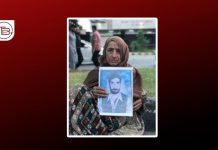The European Union (EU) and United Nations Children’s Fund (UNICEF) have signed an agreement to launch a 5-year Balochistan Education Support Program (BESP). EU will provide 17.4 million Euros (PKR 3.27 Billion). The overall cost of this project is Euro 22.2 million and UNICEF co-financing is Euro 4.8 million (PKR 0.92 billion).
The new program aims to contribute to supporting the Government of Balochistan to build high-quality performance and management education systems in the province. It will contribute to the overall objective of improving literacy, numeracy, skills, and qualifications for the people in the province. It will do so through improving access to quality primary and middle-level education and by increasing accountability, reporting, and transparency of the Secondary Education Department.
BES II is providing continuity to the Balochistan Basic Education Programme (BBEP) for which the EU and UNICEF partnered in 2016. The new program will help build on all successful reform initiatives of the BBEP such as the new performance management system, the newly established Balochistan Assessment and Examination Commission, strengthened and expanded parent-teacher school management committees, local education councils and the school development process.
The Ambassador of the European Union to Pakistan, Androulla Kaminara said, “Education is a basic human right and key to ensuring that people do not fall behind in society and in life. The EU is committed to ensuring access to quality education for all boys and girls in Balochistan, which would enable them to follow their dreams and contribute to a better future. The Pandemic has had a significant impact on education and our support will focus on addressing some of these challenges”.
Aida Girma, the UNICEF Representative in Pakistan said “the setback to educational activities due to COVID19 must not deter us from trying to provide a better and brighter future for the children and young people of Balochistan.”
“Led by the Education Department, supported by generous funding from the EU and encouraged by the resilience and determination of the people, UNICEF will endeavor to translate children’s right to education into outcomes. The BES II will go a long way to help achieve the long-term targets set in BBEP and the new initiatives reflected in the program,” Girma added.
In BES II, additional activities have been included to make up for the academic time lost due to COVID19. These activities include the training of teachers on Standard Operative Procedures (SoPs) for school health and safety, tailoring enrolment drives to ensure that children return to education and providing alternatives for children who drop out due to economic impact of the crises.






























